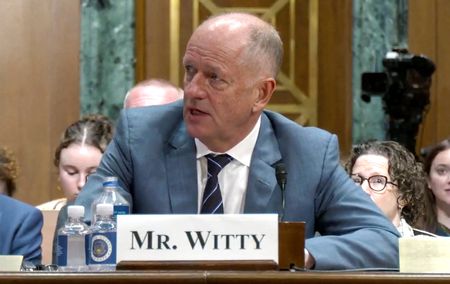By Neil J Kanatt and Savyata Mishra
(Reuters) – Sportswear maker Under Armour said on Tuesday it plans to raise prices on some of its products to cushion a hit from looming tariffs, after it posted a smaller-than-expected drop in quarterly revenue aided by its turnaround efforts.
The retailer has so far been focusing on increased full-price sales of its apparel and footwear, while cutting promotions, inventory and workforce to reverse revenue declines it suffered in the last two years.
Under Armour will now plan targeted price hikes and diversify its supply chain across countries facing relatively lower levies under the Trump administration, CFO David Bergman said on a post-earnings call.
The company, which refrained from providing an annual forecast, currently sources about 30% of its overall merchandise volume from Vietnam, roughly 20% from Jordan and 15% from Indonesia.
Its margins could take a hit if U.S. President Donald Trump’s imposition of a 46% tariff on imports from Vietnam and a 32% levy on Indonesian goods come into effect in July, unless a favorable agreement has been reached.
Under Armour’s gross margins grew 170 basis points in the fourth quarter to 46.7%, boosted by fresh and trendier merchandise and discounts and inventory cuts in its off-price channels.
“(The) strategy of shedding lower-value sales and reducing discounts and promotions is still playing out,” said EMarketer analyst Sky Canaves, adding that the second half of the year would give a better indication of progress.
The company expects first-quarter revenue to decline 4% to 5%, compared with analysts’ expectations of a 1.9% fall, according to data compiled by LSEG.
Its revenue fell 11% to $1.18 billion in the quarter ended March 31, compared with analysts’ estimate of a 12.4% drop to $1.17 billion.
“While the average consumer may be under pressure, orienting towards a more premium and less promotional product assortment may position Under Armour towards a comparatively more resilient consumer base during these uncertain times,” said MScience analyst Drake MacFarlane.
(Reporting by Neil J Kanatt and Savyata Mishra in Bengaluru; Editing by Shinjini Ganguli)











